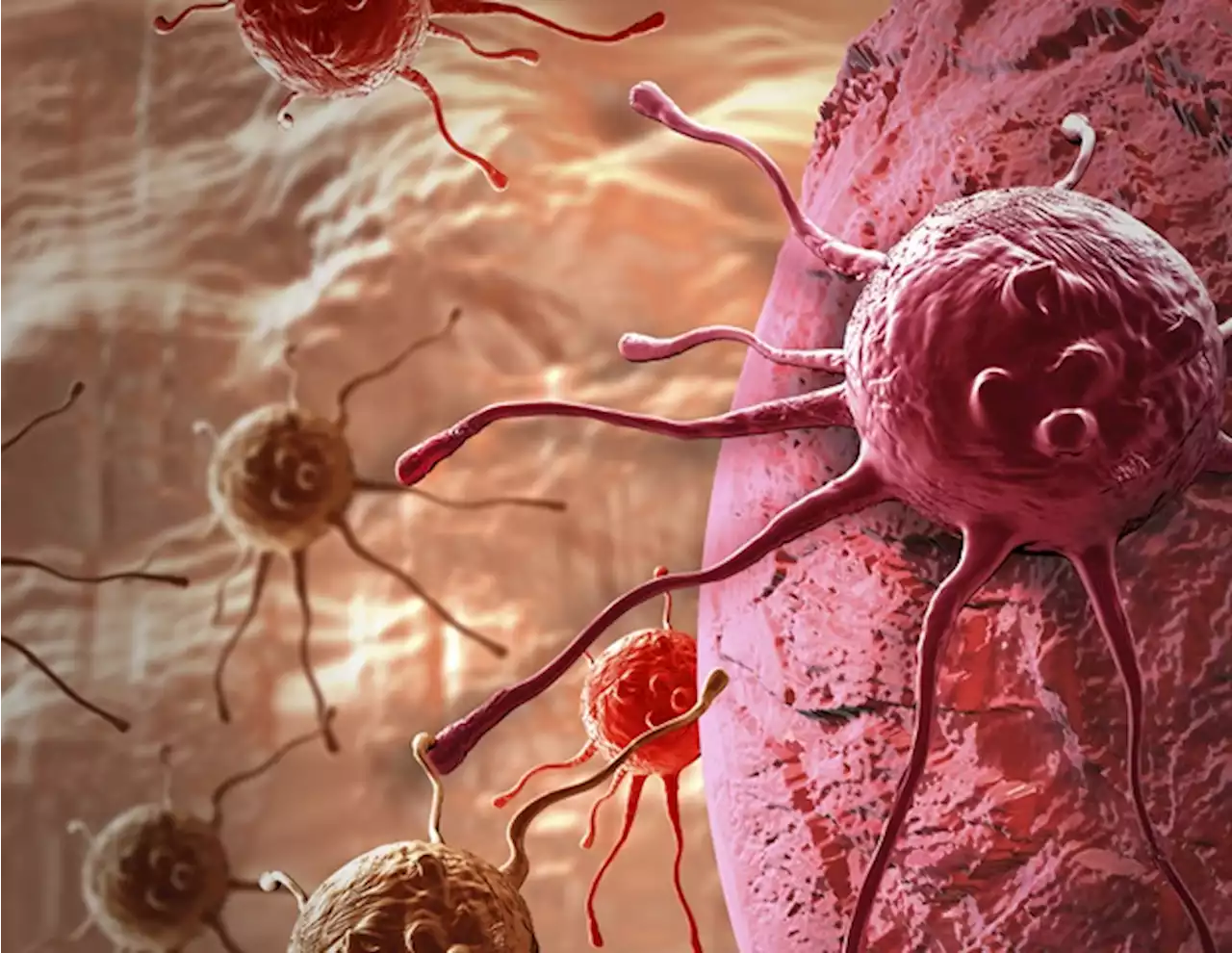Patients with stage 1–3 non-small cell lung cancer (NSCLC) given a combination immunotherapy prior to surgery (neoadjuvant) had a better major pathological response (10% or less residual cancer) when the cancer was removed than those who took a single immunotherapy agent alone, according to results of a novel multicenter phase 2 NeoCOAST platform trial that included two investigators from the Johns Hopkins Kimmel Cancer Center and its Bloomberg-Kimmel Institute for Cancer Immunotherapy.
Reviewed by Megan Craig, M.Sc.Sep 14 2023 The results were published online Sept. 14 in Cancer Discovery, a journal of the American Association for Cancer Research.
Among participants, 27 patients received durvalumab alone, 21 received durvalumab plus oleclumab, 20 received durvalumab plus monalizumab, and 16 received durvalumab plus danvatirsen. Treatment was administered over a four-week period prior to surgery. Major pathological response rates were seen in 11.1% of patients receiving durvalumab alone ; in 19% of patients receiving durvalumab plus oleclumab ; and in 30% of patients receiving durvalumab plus monalizumab .
There's a whole host of novel immunotherapy agents being developed in lung cancer and other tumor types for advanced disease, but the evaluation of those drugs for treatment of earlier-stage disease has been very slow. The trial was successful, and demonstrated that patients who received the novel combinations of durvalumab with monalizumab and durvalumab with oleclumab had higher levels of response, where the tumor had regressed by the time of surgery.
Danmark Seneste Nyt, Danmark Overskrifter
Similar News:Du kan også læse nyheder, der ligner denne, som vi har indsamlet fra andre nyhedskilder.
 Study shows no increase in cancer risk for most patients with reflux diseaseReflux disease manifests as acid regurgitation and heartburn and is a known risk factor for esophageal cancer. However, a new study published in The BMJ by researchers at Karolinska Institutet now reports that the majority of patients do not have a higher risk of cancer. A large-scale study from three Nordic countries shows that the cancer risk is only elevated in patients whom gastroscopy reveals to have changes in the esophageal mucosa.
Study shows no increase in cancer risk for most patients with reflux diseaseReflux disease manifests as acid regurgitation and heartburn and is a known risk factor for esophageal cancer. However, a new study published in The BMJ by researchers at Karolinska Institutet now reports that the majority of patients do not have a higher risk of cancer. A large-scale study from three Nordic countries shows that the cancer risk is only elevated in patients whom gastroscopy reveals to have changes in the esophageal mucosa.
Læs mere »
 Majority of patients with reflux disease do not have higher risk of cancer, study reportsReflux disease manifests as acid regurgitation and heartburn and is a known risk factor for esophageal cancer.
Majority of patients with reflux disease do not have higher risk of cancer, study reportsReflux disease manifests as acid regurgitation and heartburn and is a known risk factor for esophageal cancer.
Læs mere »
 Breast cancer recurrence may be triggered by chemotherapy injury to non-cancer cellsA standard chemotherapy drug injures surrounding non-cancer cells, which can then awaken dormant cancer cells and promotes cancer growth, according to a new study publishing September 12 in the open access journal PLoS Biology by Ramya Ganesan of Emory University, US, and colleagues. The finding is important for understanding cancer recurrence and may point to important new targets to prevent it.
Breast cancer recurrence may be triggered by chemotherapy injury to non-cancer cellsA standard chemotherapy drug injures surrounding non-cancer cells, which can then awaken dormant cancer cells and promotes cancer growth, according to a new study publishing September 12 in the open access journal PLoS Biology by Ramya Ganesan of Emory University, US, and colleagues. The finding is important for understanding cancer recurrence and may point to important new targets to prevent it.
Læs mere »
 AACR Cancer Progress Report provides latest statistics on cancer research and treatmentToday, the American Association for Cancer Research (AACR) released the 13th edition of its annual Cancer Progress Report, which chronicles how basic, translational, and clinical cancer research and cancer-related population sciences-;primarily supported by federal investments in the National Institutes of Health (NIH) and the National Cancer Institute (NCI)-;remain vitally important to improving health and saving lives.
AACR Cancer Progress Report provides latest statistics on cancer research and treatmentToday, the American Association for Cancer Research (AACR) released the 13th edition of its annual Cancer Progress Report, which chronicles how basic, translational, and clinical cancer research and cancer-related population sciences-;primarily supported by federal investments in the National Institutes of Health (NIH) and the National Cancer Institute (NCI)-;remain vitally important to improving health and saving lives.
Læs mere »
 Blackpool hospitals now in top 20 in UK for faster cancer diagnosisThe backlog of undiagnosed cancer patients has been significantly reduced
Blackpool hospitals now in top 20 in UK for faster cancer diagnosisThe backlog of undiagnosed cancer patients has been significantly reduced
Læs mere »
 New class of iron-targeting compounds found to hamper proliferation of cancer cellsResearchers at the University of Arizona Cancer Center discovered a new class of iron-targeting compounds that hamper the proliferation of cultured malignant cells in a laboratory setting.
New class of iron-targeting compounds found to hamper proliferation of cancer cellsResearchers at the University of Arizona Cancer Center discovered a new class of iron-targeting compounds that hamper the proliferation of cultured malignant cells in a laboratory setting.
Læs mere »
